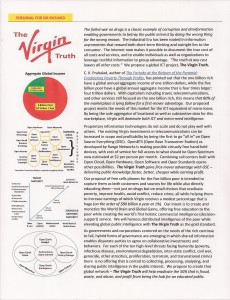
How to Think Like Sherlock Holmes: Lessons in Mindfulness and Creativity from the Great Detective
by Maria Popova
“A man’s brain originally is like a little empty attic, and you have to stock it with such furniture as you choose.”

“The habit of mind which leads to a search for relationships between facts,” wrote James Webb Young in his famous 1939 5-step technique for creative problem-solving, “becomes of the highest importance in the production of ideas.”But just how does one acquire those vital cognitive customs? That’s precisely what science writer Maria Konnikova explores inMastermind: How to Think Like Sherlock Holmes (UK; public library) — an effort to reverse-engineer Holmes’s methodology into actionable insights that help develop “habits of thought that will allow you to engage mindfully with yourself and your world as a matter of course.”
Phi Beta Iota: Clarity, Diversity, Integrity.
See Also:
INTELLIGENCE with INTEGRITY: Enabling Hybrid Public Governance with Open-Source Decision-Support
THE OPEN SOURCE EVERYTHING MANIFESTO: Transparency, Truth, & Trust
INTELLIGENCE for EARTH: Clarity, Diversity, Integrity, & Sustainability






